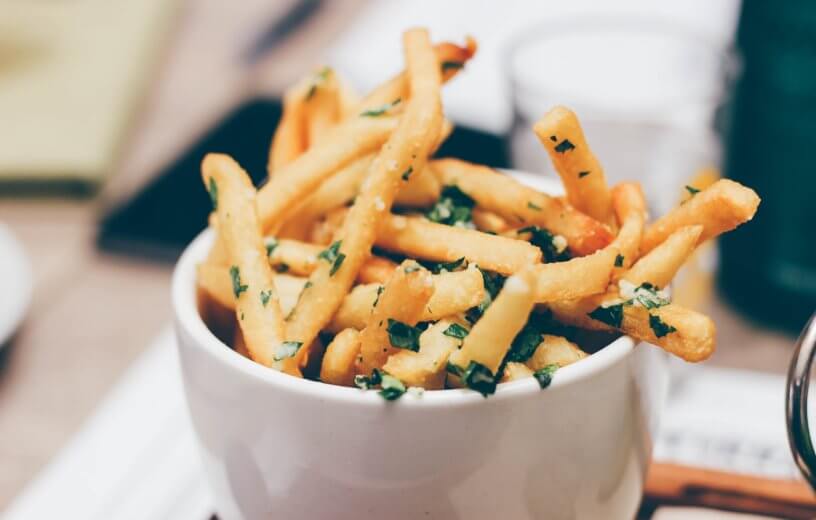Study finds that people are more likely to eat healthier when they’re exposed to the smell of unhealthy foods for long periods of time.
TAMPA — If you find yourself caving in and ordering a basket of fries whenever you catch a whiff of them in the mall food court, take a few extra minutes to soak in the smell. That may be all you need to stop yourself from falling victim to the guilty pleasure, a new study finds.
Researchers from the University of South Florida say that when people stop and absorb the inviting smell of a high-calorie snack for more than two minutes, they’re less likely to eat it.
“Ambient scent can be a powerful tool to resist cravings for indulgent foods,” says lead author Dipayan Biswas, a marketing professor at the university’s College of Business, in a media release. “In fact, subtle sensory stimuli like scents can be more effective in influencing children’s and adults’ food choices than restrictive policies.”
For the study, Biswas and his research team conducted a series of tests in which they discreetly released a strong scent of an unhealthy food such as cookies or pizza, or a healthy food such as apples or strawberries in various settings.
In one test, the scent of pizza or apples was released in a middle school cafeteria with a diverse student body on different days. On the day that the smell of pizza filled the air, 21% of the items sold during lunchtime were deemed unhealthy by researchers. Conversely, when the cafeteria smelled of apples, far more students opted for higher-calories foods: 37% of the sales that day were considered unhealthy. On a third sample day, no scent was released and 36.5% of the foods sold still fell in the unhealthy category.
The same test was also run in a supermarket using the odors of either cookies or strawberries. Shoppers who participated in the study turned in their receipts after they finished their purchased. The authors found that when the store smelled of cookies, about 29.5% of the items purchased by shoppers were considered unhealthy, compared to 39% of healthy foods bought. When the store was filled with a strawberry scent, more than 45% of items sold were unhealthy, while just under 27% were the opposite.
To see how duration of a scent played a role in food choices, researchers also filled a lab room with the various smells for either 30 seconds or at least two minutes before asking participants which food they wanted to eat more. They found that people exposed to the cookie scent for less than 30 seconds preferred the cookie; but when that time was extended to more than two minutes, the smell become undesirable to participants who opted for the strawberries instead.
The results were also the same when pizza and apples were used.
Researchers hope the findings will help lead to new ways to prevent obesity in children.
“In essence, if reward structures and areas representing craving in the brain can be satisfied with olfactory inputs instead of actual gustatory consumption of unhealthy foods, this can help with fighting food urges,” the authors write.
The full study was published in the Journal of Marketing Research.
